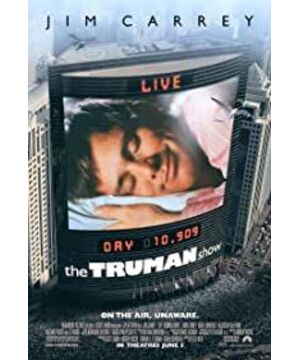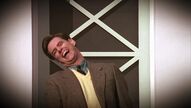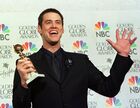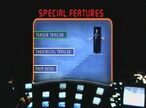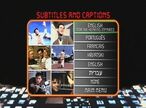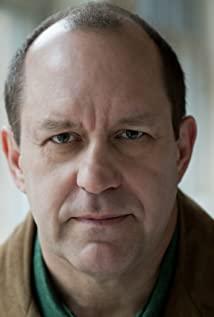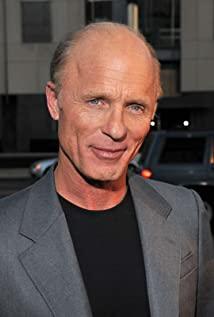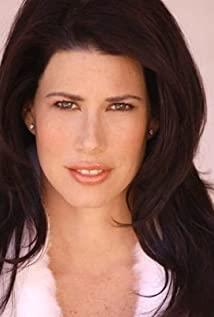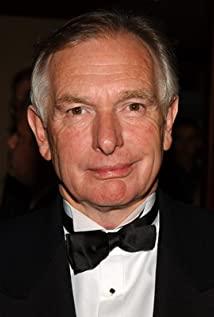The first is the first weight. I would like to call it the level of political philosophy and moral philosophy. Mark Lilla once talked about the reason why Foucault's "Discipline and Punishment" was able to become popular in the United States, because "this book fits the American fantasy and persecution fanatical imagination of politics". Obviously, this "The Truman World" has the shadow of political persecution films since "One Flew Over the Cuckoo's Nest". The political life in our immediate situation is completely controlled by a "big brother" who controls everything and monitors everywhere. Anyone who has a unique idea and insists on choosing a deviant life and values that are independent and unconventional will be regarded as a lunatic and mentally abnormal by the people around them and will be isolated. In the film, Truman, when trying to break the suffocating routine life, was directly denounced by the first false wife as "not normal" - here, we can undoubtedly see from Hölderlin and Nietzsche The barren tombs and corpses where countless mad philosophers have been buried. "In the eighteenth century, we locked up all the madmen" - "History of Madness in the Classical Age" says. The rusted door was closed suddenly, and the lingering sound is still lingering to this day.
Then came the second weight. I call this the level of social theory. All of them are controlled by technology and rationality, and this is also the field that countless thinkers who reflect on modernity also choose to write. Weber mentioned the iron cage of modernity. Everyone is deeply immersed in the system and comfortably disciplined. We are also happy to choose to act as the "little screw" of the entire huge social machine, so we go 9 to 5, Enjoy the comfortable life that post-industrial society offers us. All sins and madness are blankly eliminated by the strict social quarantine mechanism, and everyone, as a product on the social history assembly line, undergoes a meticulous disinfection process under the irradiation of scientific ultraviolet rays. Happiness is like a vitamin, which can be taken orally or injected, so a happy and beautiful life is produced by our society. This is also the final arrival of the era of the "last man". "This 'man' is docile and forgetful, does not know what animal energy is, has no ability to escape, and does not want to be different: 'What is love? What is creation? What is desire? What is a star?' The last man asked and blinked his eyes." But the TRUE man in the film (the TRUE man, this name has a sense of fatalistic horror, is this the life of a real person?), fortunately, In the end, he rejected the director's advice to stay in the Peach Blossom Land where food and clothing are safe, and turned to leave.
Then there is the third weight. This can be called the level of empirical philosophy. It is a question of "the hidden grammatical rules that govern our cognitive mechanisms"—that is, whether it is possible for us to eventually "escape what we are confronted with and end up thinking differently?" Foucault's " Words and Things has proved that all our knowledge, all knowledge, is always implicitly determined by a set of invisible paradigms. This inescapable paradigm is like the glasses we put on, and all words can only be presented after being filtered through it. Described in this way, it seems to be a bit like what I define as the fourth level of transcendental philosophy—that is, a deformation of Kant's theory. I insist on making a distinction here, mainly because of the habit of feeling, alas, I will go back to Kant again. Specifically in "The World of Truman", in the last scene, Truman touches the high wall on the edge of the artificial sea, which seems to symbolize the limit of human cognition, but it is amazing that he finally took a step and reached common sense. outside the world of knowledge. Both Foucault and Kant theories seem to be despairing to a certain extent - man's perpetual asceticism on this shore. But until the last moment, the two masters still retained the hope of transcendence: for Kant, it is the intuition of aesthetics (Truman's awakening is related to Mary's love, and the relationship between love and aesthetics is self-evident), thereby comprehending the other side of God, Freedom, the immortality of the soul; for Foucault, the possibility of "another kind of thinking".
The last layer may be the level of experience and ultimate. Every human being is born, and is thrown into the world, and there is nothing certain about a person or a lifetime except the fact that he will die. And in the middle of life and death, is man truly free? I have always believed that no matter how you go, there is always an invisible net covering it. For example, the ancient Greek Hercules famously said, "A man's character is his destiny." If you can ask next, where does character come from? It is still constructed from small and large trivial matters that cannot be told in an environment that could not be chosen since childhood. At most, people can "know" that they are not free. This is the limit. It seems as if Lacan said that psychoanalysis does not wish to change the client anything, but only allows the client to understand the cause and effect of his own behavior today. In fact, I have always seen this as a symbolic statement of the limits of human freedom. "The Truman World" left hope and let the protagonist walk out of the destined world. It can also be seen as the god of fate grinning: "A person, despite being trapped in various general structures, still possesses certain resources, and may even successfully write off the imprints left by thousands of years of history, No matter how short-lived it is." Perhaps people always need the myth of "freedom", and it is meaningless to ask whether freedom is true or not. The point is, as Nietzsche pointed out, without this knowledge, we cannot live.
View more about The Truman Show reviews


